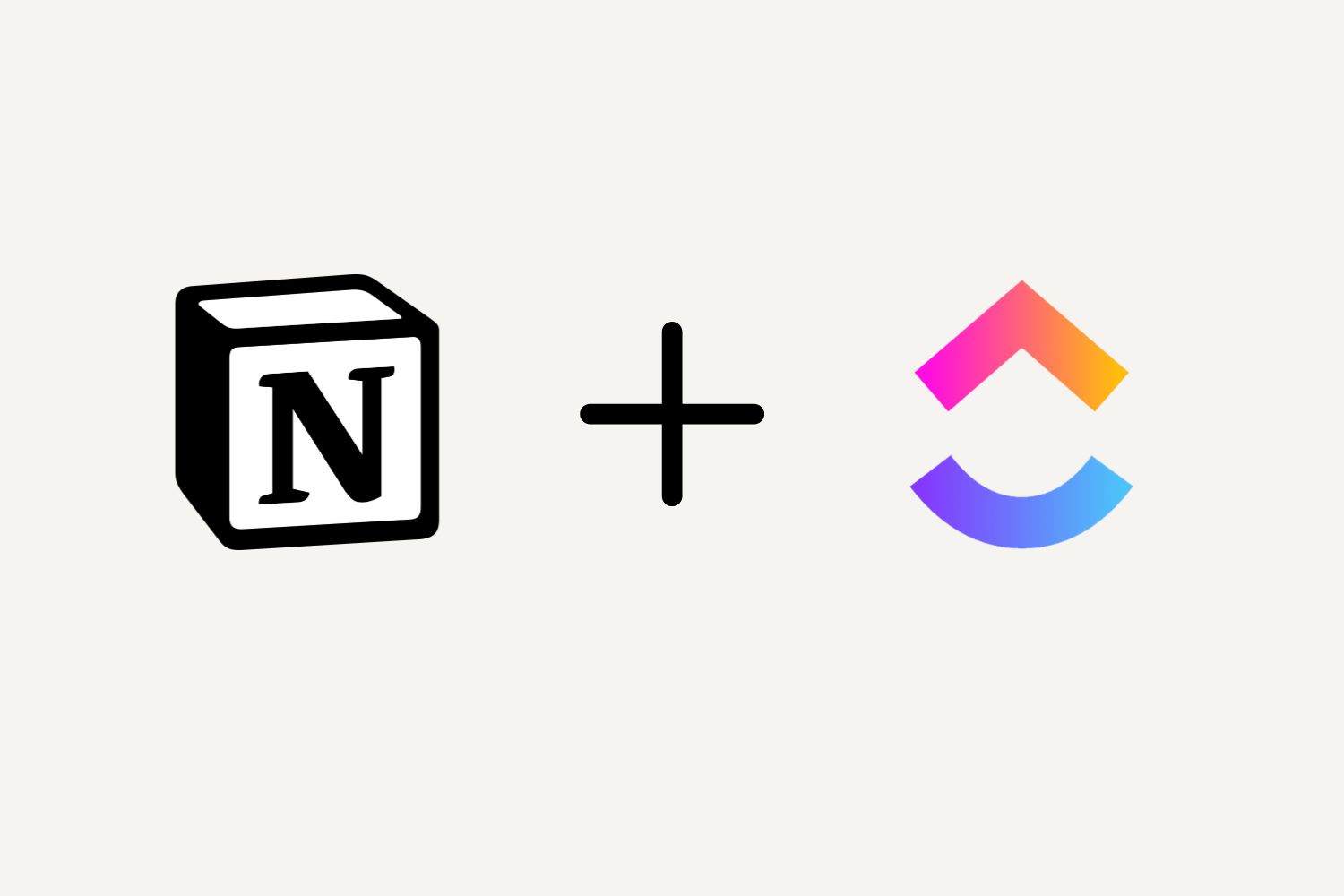Physical Address
304 North Cardinal St.
Dorchester Center, MA 02124
Physical Address
304 North Cardinal St.
Dorchester Center, MA 02124

In today’s fast-paced digital world, productivity tools have become essential for managing personal tasks, team projects, and even entire businesses. Two of the most popular tools—ClickUp and Notion—have risen to the top of the productivity app market. But which one is right for you?
In this detailed comparison, we’ll break down the key features, use cases, ease of use, pricing, customization, and collaboration capabilities of ClickUp vs Notion so you can make the best choice in 2025.
ClickUp is a powerful all-in-one productivity platform designed primarily for task management, project collaboration, and team workflows. It offers features such as task tracking, time tracking, goals, docs, whiteboards, and integrations.
Notion, on the other hand, is a flexible workspace that allows individuals and teams to create, organize, and share content in a more visual and intuitive way. It combines note-taking, database management, wiki-building, and task management in one space.
Notion wins when it comes to a minimalist and elegant interface. Its drag-and-drop block system makes it easy to build pages, databases, and templates with little to no learning curve. Even new users can start creating content right away.
ClickUp has a more complex and feature-rich interface, which can be overwhelming for beginners. However, once you get used to it, it offers a level of control and power that surpasses most project management tools. ClickUp’s UI has improved over the years and is more customizable in 2025 than ever before.
This is where ClickUp shines. It’s built specifically for managing tasks, subtasks, checklists, dependencies, Gantt charts, calendars, and agile boards. You can assign tasks, track time, set priorities, automate workflows, and more.
Notion offers basic task management features, such as to-do lists and kanban boards, but it lacks the deeper task automation and advanced project planning tools that ClickUp offers. Notion is more suitable for light task tracking or personal use, whereas ClickUp is built for teams and large-scale project management.
Both tools offer extensive customization, but in different ways:
ClickUp allows you to customize views (List, Board, Gantt, Calendar, Timeline), task types, custom fields, statuses, and more.
Notion allows for creative freedom in page layout, content blocks, databases, and knowledge management with hundreds of community-made templates.
Notion is more free-form, great for documentation, personal dashboards, or wikis. ClickUp is more structured, ideal for workflows, teams, and managing deadlines.
ClickUp includes real-time collaboration features like commenting on tasks, assigning comments, built-in chat, and even whiteboards for brainstorming. These features are designed with teams in mind.
Notion allows team collaboration through shared workspaces and comments on pages, but it lacks the real-time chat or deeper task-comment features that ClickUp offers. However, Notion’s collaborative documents are clean and easy to navigate.
In 2025, both tools offer powerful integrations:
ClickUp integrates with Slack, Google Drive, Zoom, GitHub, Zapier, Microsoft Teams, and more. It also offers built-in automation features to streamline repetitive tasks.
Notion has improved integrations and now connects with tools like Slack, Google Calendar, and Zapier, but its automation features are still not as advanced as ClickUp’s.
Here’s a quick look at their 2025 pricing models:
ClickUp:
Free Plan (limited features)
Unlimited: $7/month per user
Business: $12/month per user
Enterprise: Custom pricing
Free Plan (for individuals)
Plus: $8/month per user
Business: $15/month per user
Enterprise: Custom pricing
Both offer generous free tiers, but Notion’s free plan is better suited for individual users, while ClickUp’s free plan is great for small teams.
Winner: Depends on use case — Notion for individuals, ClickUp for teams.
Use Case Best App
Personal productivity & notes Notion
Documentation & knowledge bases Notion
Task and project management ClickUp
Team collaboration ClickUp
Content creation & wikis Notion
Workflow automation ClickUp
All-in-one business management ClickUp
Choose Notion if you’re a solo creator, freelancer, or student who wants a simple, beautiful, and highly customizable space for organizing thoughts, projects, and notes.
Choose ClickUp if you’re part of a team, a project manager, or a business that needs an all-in-one tool to manage projects, workflows, deadlines, and collaboration.
In fact, some power users even use both together: ClickUp for task execution and Notion for documentation and knowledge bases.
Ultimately, the choice between ClickUp and Notion comes down to your specific needs. If you’re focused on task management and scaling workflows, ClickUp is hard to beat. If you prioritize organization, flexibility, and visual content creation, Notion is your best friend.
Whichever you choose, both tools are leaders in productivity in 2025—and integrating them smartly might just give you the best of both worlds.